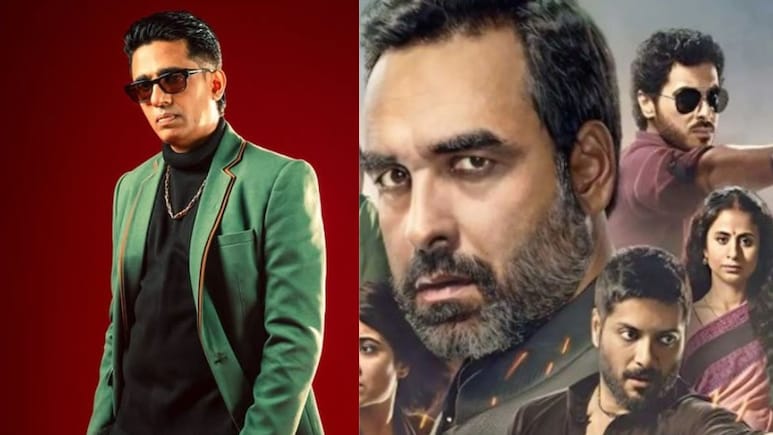
Gulshan Devaiah's journey in cinema has always been one of quiet consistency and artistic conviction. The actor, who began his career with Anurag Kashyap's That Girl in Yellow Boots (2010), has since built a reputation for taking risks, playing layered, unpredictable men who often exist in the grey. With Kantara Chapter 1, the Kannada industry is finally taking notice of one of its own - a homegrown talent who made his name in Hindi cinema.
The Rishab Shetty directorial has been a box office juggernaut. On Day 15, Kantara Chapter 1 crossed Rs 485 crore in India, inching towards the Rs 500 crore mark, while already surpassing it globally. The film has overtaken Saiyaara, Coolie, War 2, and Lokah Chapter 1, becoming the second-highest-grossing film of the year across languages.
With a filmography that includes Shaitan, Hunterrr, Mard Ko Dard Nahi Hota, and Dahaad, Gulshan has worked with some of the finest directors in contemporary cinema. Yet, he's candid about roles he has admired from afar.
"Half of Rajkummar Rao's career!" he laughs. "Ayushmann's part in Andhadhun, Rajkummar's in The White Tiger. Also, Varun Dhawan's role in October and Badlapur. I even told Varun and his dad, David Dhawan - I'm burning with jealousy! And Badlapur... I fantasised about doing that one."
But while he may dream of playing certain characters, Gulshan Devaiah doesn't regret turning down any role, not even the iconic Mirzapur parts of Guddu Bhaiya and Munna Bhaiya, eventually played by Ali Fazal and Divyenndu. "No regrets, absolutely none," he said. "Some projects are great for your career, but that's not enough. I need a genuine compulsion to do them. Divyenndu and Ali did phenomenally well, and I'm happy for them."
Born and raised in Bengaluru, Gulshan Devaiah had never worked in Kannada films before Kantara Chapter 1, in which he played the role of the menacing King Kulashekhara. But that changed everything.
"Maybe in the Kannada film industry they didn't know me because people don't regularly watch Hindi films or series," he said. "So, my dad had an accident and had to get a hip replacement. When I was at the hospital, suddenly all the staff - housekeeping, nurses - started saying, 'Hey, you're there in Kantara!' One of them even showed me a WhatsApp message from his son and asked for a voice note. That's when I realised the Kannada audience finally knew me."
For Gulshan Devaiah, the film's success isn't just about numbers - but he admits that they do matter.
"It definitely has an impact on my career. I won't pretend I don't care. I'll give it as much importance as it needs, but I won't take it too seriously. Rishab gets all the credit - I'm just a small part of it. But yes, it empowers me. Prices will go up, opportunities will open up," he said.
"The key is to stay realistic. If I start outpricing myself, people will just move on to Vijay Varma or Jaideep Ahlawat, who are both phenomenal actors and more expensive."
He laughs. "I've been around for nearly 15 years; I know what's reasonable. It's all about perception and being wise."
Fifteen years since his debut, Gulshan Devaiah continues to balance instinct and intellect - an actor who knows that success is perception, but craft is conviction. And with Kantara Chapter 1, he's found both - a film that's taken him back home, to an audience that's finally discovered one of their own.
Also Read | Gulshan Devaiah To NDTV On South vs Bollywood: "Hindi Films Are Packaged, Casting Is Not Done"

